Content from the Brookings Doha Center is now archived. In September 2021, after 14 years of impactful partnership, Brookings and the Brookings Doha Center announced that they were ending their affiliation. The Brookings Doha Center is now the Middle East Council on Global Affairs, a separate public policy institution based in Qatar.
The spirit of Mohammed Bouazizi is alive in today’s Tunisia. Youth torch tires and protest in commemoration of the street vendor’s death that sparked the country’s revolution—and the Arab Spring—in December 2010. Young people with nothing to lose remain dauntless. Every year, thousands gamble with their lives: Seeking to escape marginalization in Tunisia, they board boats—often dangerously overcrowded and under-resourced—crossing the Mediterranean.
The trip, a search for greener pastures to the north, is known as the harqa. Harqa is an exit strategy of those experiencing intense marginalization at home. They seek out alienation in foreign countries; it may be less painful than socio-economic and political exclusion at home. The government in Tunis, meanwhile, has failed to address the deeper problems of exacerbating inequalities underlying the harqa.
Migration to the north
Many harqa youth participated in the 2011 revolution. Excluded from public life, deprived of the state’s distributive attention and capacity, many have since broken with all forms of civic and political engagement. Even today, a university education proves not to be a stepping-stone to employment, financial security, or the ability to start a family. Independence did not bring salvation to Tunisians; neither has the revolution. These youth face the wrath of the high seas, risking renewed rejection where they disembark. Some make the failed harqa journey more than once. “Successful” migrant youth brave new troubles in Europe: police, surveillance, Schengen regulations, and more.
There are hierarchies even in escaping misery. Such is the chain of migration northward, its postcolonial bitterness made immemorial in Tayyeb al-Salih’s classic “Season of Migration to the North.” Migrants from sub-Saharan Africa travel north to Tunisia, as Tunisians migrate farther north, to Italy. Tunisia’s national unemployment rate exceeds 15 percent—and it is double that in some southern regions. Yet paradoxically, it faces a pressing shortage of agricultural workers. The country has come to rely on thousands of the estimated 60,000 migrants from sub-Saharan Africa. They work for lower pay in demanding, seasonal jobs, awaiting their turn for the precarious journey to Europe.
The numbers are staggering. By the end of August 2018, an estimated 3,811 undocumented migrants reached Italy, according to the Tunisian Forum for Economic and Social Rights. Tunisian authorities stopped 6,369 Tunisians from leaving the country illegally in 2018, almost twice as many as the year before. Still, about 1,600 Tunisians perished at sea, after 1,721 died in 2017.
The response from Tunis
And as youth are clandestinely migrating in yachts, there is suspicion that some powerholders may be behind the harqa. The haves of Tunisia aid the fleeing of the have-nots. On the Kerkennah Islands this past June, close to 100 migrants drowned as an overcrowded boat capsized. But the sacking of the interior minister and a perfunctory government investigation has failed to put to bed questions about security officials’ involvement in the human trafficking business.
Government overtures, including boasts of stopping migration attempts, do not put out the fire driving the harqa youth in the first place. In the words of 20 year-old Marwan, who made the precarious harqa journey only to be deported by Italian officials: “I wished for the plane to crash and for me to drown, rather than arriving anew at the unknown [in Tunisia].”
This phenomenon prompts difficult questions. Can the Tunisian state not respond to the aspirations of the revolution, the demands of those who revolted against the regime of Zine El Abidine Ben Ali?
Led by the on-again, off-again leadership of Beji Caid Essebsi and Rached Ghannouchi, Tunisia today is not a country geared towards the forward-looking aspirations of its youth. When the state is incapable of containing such a tragic and treacherous phenomenon, it becomes part of the problem.
In addressing migration, Tunisian politicians emphasize the policies of European receiving nations, rightly decrying forced deportations. Yet, officials evade the responsibilities of a government “for the people.” The problem is not just a matter of “closing the gap” between Northern and Southern countries, as Tunisia’s minister of social affairs recently stated. Tunisia-side, it is more fundamentally about resource and opportunity distribution, as well as local and regional development.
Officials—from former President Moncef Marzouki to today’s Essebsi—repeatedly break their promises to meet with families of the missing. Undeterred, families have formed advocacy groups. They camp out in front of government buildings, doggedly pursuing answers.
Amid this state of mistrust and the impermanence of government (with in-fighting and shifting alliances) is the permanence of protest. Tunisians engaged in over 700 demonstrations across the country in November 2018, recently re-erupting in the country’s interior. Popular pressure refuses to be silenced. Perhaps protestors harbor a defiant hope that Tunisia may once again represent green pastures: the potential and abundance of a secure and flowering future in a land of freedom and dignity.
Crisis of democratization?
The tragically daring exodus of young Tunisians is one symptom of what may be termed a “crisis of democratization.” It is a quasi-analogue to the so-called “crisis of democracy,” threatening more established democracies.
The hallmarks of this crisis in Tunisia are the short-sightedness and lack of political know-how by elites. Consecutive governments since the 2011 revolution—Marzouki to Essebsi—have not risen to occasion of running a poor state in the world of modern economies.
Islamists, leftists, and “old destourians” (remnants of the former ruling party, Habib Bourguiba’s Neo-Destour, including President Essebsi) are mired in political discord—as if they were hellbent on settling political scores, rather than addressing serious issues of youth brain-drain, marginalized regions, skyrocketing debt, and spreading discontent. President Essebsi of the ruling Nida Tounis party has ended the long-tenuous political alliance with Islamist Ennahda. In this Jumhuriyyat al-shaykhayn (referring to the Republic of the Two Elders, or gerontocracy), these two “lame ducks” have missed one big lesson of politics: Who gets what, when, and how matters. Even if Harold Lasswell’s adage is lost on them, they ought to look no further than their scholastic compatriot Ibn Khaldun, who called economic equality a matter of Islamic ethics. The consensus these two odd partners brought is now losing steam in the absence of performance legitimacy. Moreover, raucous in-fighting within both parties consumes already-limited political capital.
Emerging since 2011, in what may be termed “fake democratization,” is a dichotomized reality. Political democratization takes place—a democratic constitution, elections—but without the matching socio-economic component of social justice. Extreme deprivation and mass unemployment have persisted since 2011, as the “two Tunisias” (the more privileged northern and coastal regions, versus the disadvantaged interior and south) grow further apart.
A devalued dinar, among the conditions of the country’s $2.9 billion loan from the International Monetary Fund (IMF), has meant higher prices on food and basic consumer products. Justifying the “time” needed for IMF reforms to take effect, Prime Minister Youssef Chahed has told Tunisians that the socio-economic situation will not improve before 2020. Work—don’t strike—is the message, and be patient. The country’s largest labor union was unconvinced, calling a general strike that went into effect January 17.
The newly passed 2019 budget law has generated considerable backlash by activists and civil society groups. They object to tax delays for wealthy business owners and the 2017 administrative reconciliation law. Apparently impervious to the plight of marginalized people, the government has given amnesty to corrupt officials from Ben Ali’s regime.
Elections are scheduled for this fall. Declining voter turnout since 2011, hovering around 30 percent in the 2018 municipal elections, is a bad sign. Seventy percent of voters say they if the vote were tomorrow, they don’t know which party they would vote for.
What Tunis should do
Leaders in Tunis must recognize that addressing the harqa necessitates more than a security approach. A holistic, long-term solution must address the drivers: inequality and marginalization.
Moreover, socio-economic inclusion and political inclusion go together, and the state must focus on curbing inequality as part of its efforts to, for instance, increase voter turnout. Overall, marginalization is the biggest risk to Tunisia’s democratization. Politicians must address work to reduce political polarization and enhance opportunities for marginalized regions and people.
Harqa is the daring, intrepid act of crossing over, breaking all rules, defying all norms. Bouazizi resorted to fire. These migrants turn to water. Like the fate of Al-Salih’s narrator in “Season of Migration to the North,” the future of Tunisia’s youth is uncertain. But it is more than a physical act. It is as though through harqa, these youth attempt to cleanse, through purgatorial self-sacrifice, their marginalized existence and exclusion. Young men take their mothers’ gold dowry to fund escape from their homeland. With all its violence and agony, harqa is the peak of the Tunisian tragedy.

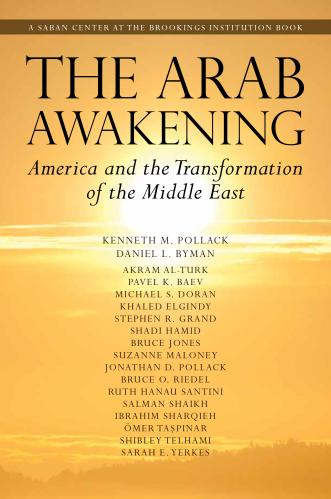
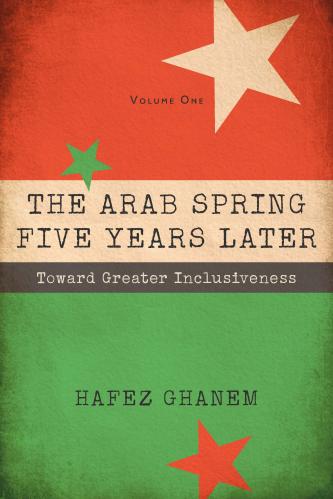
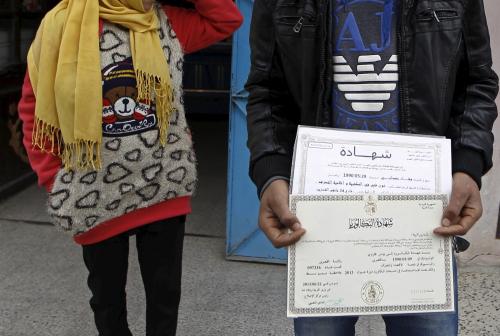
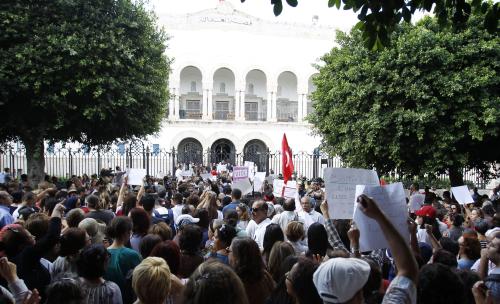
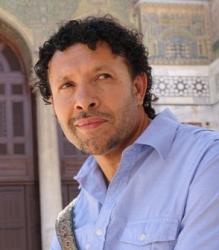
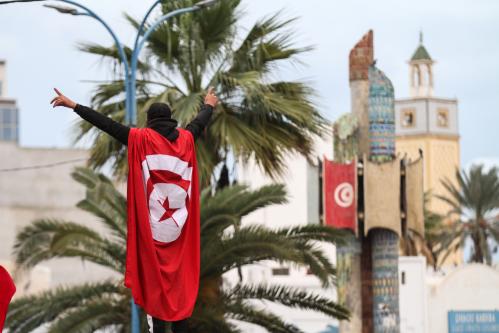
Commentary
Tunisia’s migration to the north
And what it says about the crisis of democratization in the country
January 17, 2019